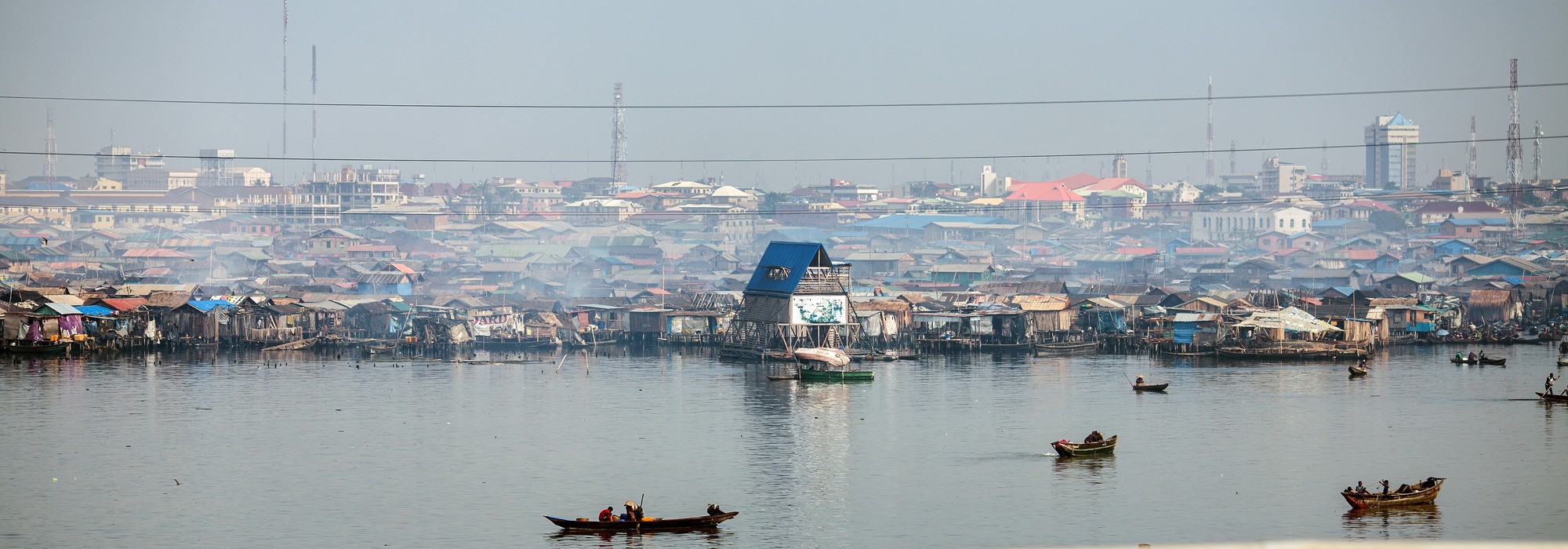Protestors during Kenya's rerun election. Young Africans know they are getting a raw deal. They are cynical about politics and angry. Credit: Andrew Renneisen / Getty
Makoko, a neighbourhood in Lagos, Nigeria’s biggest city, is a place that has become famous for its misery. It is a sort of floating slum underneath the Third Mainland Bridge, a 12km stretch of concrete that connects Lagos’s islands to the rest of the city.
Once a fishing village, over the years, thousands of shacks have been built in Makoko on land reclaimed from the bay by filling it with rubbish. People live in them, crowded six to a room. There is no running water, so hundreds of people make a living hauling in plastic containers filled from boreholes on the mainland. Children are bathed outside in buckets. Electricity is provided by generators, which gives the air the tinny taste of diesel. The alleyways reek of human shit.
The Lagos State government has been trying to get rid of Makoko for years. They send in bulldozers to tear down the shacks and clear the land for developers. But it never stays cleared for long. The slum grows out into the bay, new shacks built with wood are floated onto the water. People keep coming, drawn to the urban jungle by the hope – however slim – of making it big.
Nobody knows how many people live there, but it could be as many as 250,000. Sixty years ago, that was the entire population of Lagos. Now it’s a sprawling, filthy, unnavigable megacity of perhaps 17 million. People overwhelm its every space. They make their homes where they can: beneath underpasses; in derelict buildings; anywhere without the thuggish security guards the rich hire to keep them out.

Africa is the world’s youngest continent. Between the Sahara and South Africa, in most countries, a majority of the population are children. In only a few countries is the median age higher than 20. This is not because people die young –for the most part, they don’t any more. It is the result of an enormous population boom.
In 1960, the entire population of sub-Saharan Africa was around 230 million people. Today, it is roughly 1 billion. According to the United Nations, by the middle of this century, it could well reach 2 billion. In 50 years or so, more than half of the world’s entire population growth will be in Africa. Two fifths of the world’s population will live on the continent. A couple of generations ago, sub-Saharan Africa had no cities with populations bigger than 1 million people. Today it has dozens.







Join the discussion
Join like minded readers that support our journalism by becoming a paid subscriber
To join the discussion in the comments, become a paid subscriber.
Join like minded readers that support our journalism, read unlimited articles and enjoy other subscriber-only benefits.
Subscribe